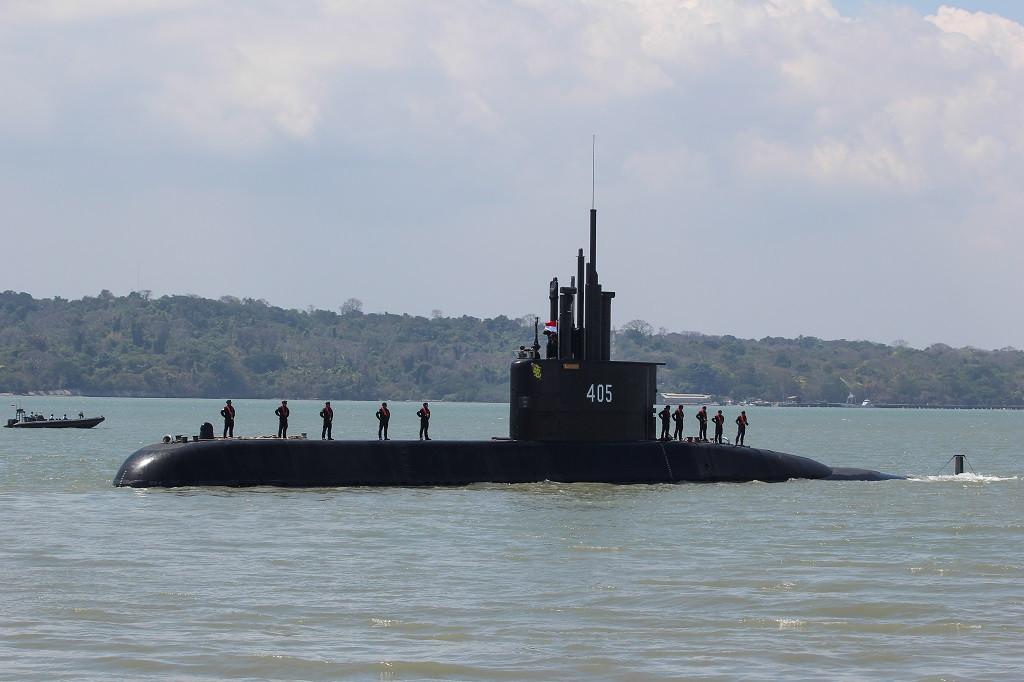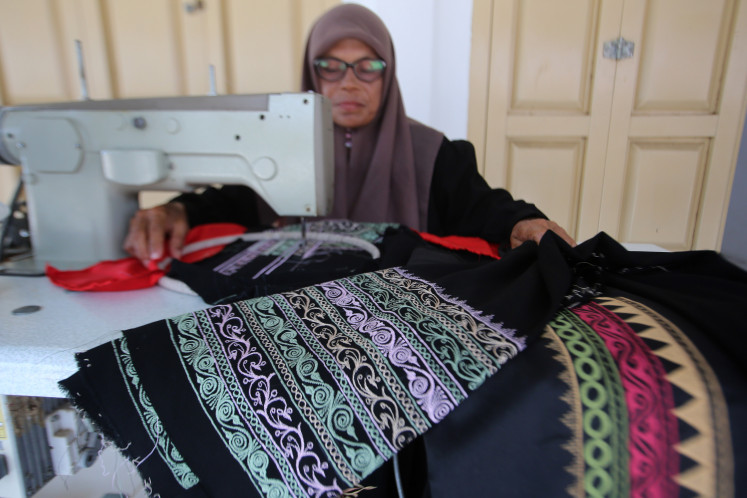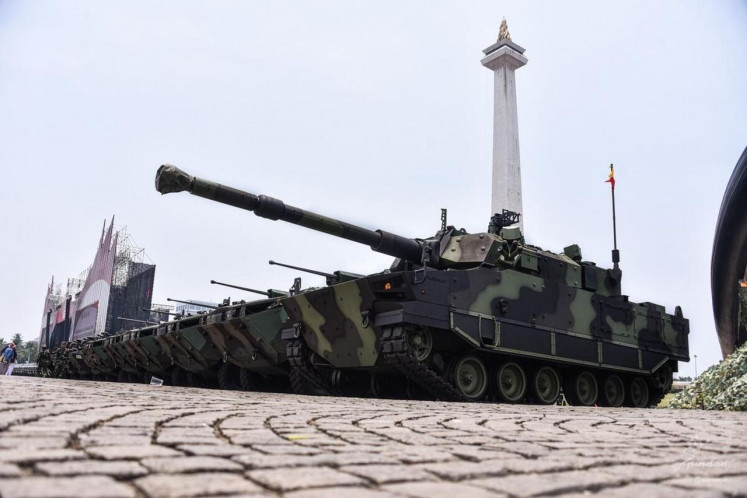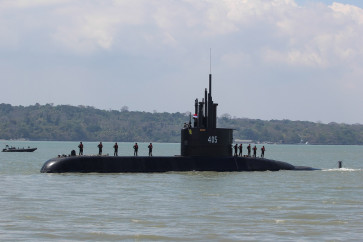Popular Reads
Top Results
Can't find what you're looking for?
View all search resultsPopular Reads
Top Results
Can't find what you're looking for?
View all search resultsWhat Indonesia should consider in China's sub offer
Creating a seamless integration of communication as well as command and control systems that are crucial for effective collaborative combat would be challenging should the Indonesian government decide to procure Chinese-made major weapon systems.
Change text size
Gift Premium Articles
to Anyone
 Crewmen line the deck of the submarine Alugoro during the Hiu Kencana (Golden Shark) brevet ceremony for officers including fleet commander Vice Adm. Heru Kusmanto and Vice Adm. Erwin S., the commander of Joint Regional Defense Command (Pangkogabwilhan) I, in the Madura Strait off Surabaya, East Java, on Sept. 12, 2023. (Antara/Didik Suhartono)
Crewmen line the deck of the submarine Alugoro during the Hiu Kencana (Golden Shark) brevet ceremony for officers including fleet commander Vice Adm. Heru Kusmanto and Vice Adm. Erwin S., the commander of Joint Regional Defense Command (Pangkogabwilhan) I, in the Madura Strait off Surabaya, East Java, on Sept. 12, 2023. (Antara/Didik Suhartono)
U
nder the 2020-2024 Minimum Essential Force (MEF) phase, the Defense Ministry has procured several programs, including Rafale fighter jets, the A400M, Scorpene Evolved submarines and GCI radars.
As the third stage of the MEF will conclude soon, along with the end of President Joko “Jokowi” Widodo’s second and final term, questions arise regarding the ministry and the Indonesian Military’s (TNI) modernization plan for the 2025-2029 period. Such an occasion creates crucial opportunities for players in the defense industry sector, both national and international, to compete for procurement contracts.
The opportunity to penetrate Indonesia’s defense industry has also attracted Beijing, which has been eyeing the sector, especially with its Southeast Asian partners. On June 28, representatives from the China State Shipbuilding Corporation (CSSC) visited the Ministry of Defense in Jakarta to offer S26T diesel-electric submarines (SSK), also known as an export variant of the Type 039 A/B Yuan-class.
Another meeting reportedly occurred on July 4 where CSSC officials also offered additional Type 052D destroyers for a discounted price if the Indonesian government decided to procure the submarines. CSSC’s proposal also includes a modification of the S26T SSK to enable it to launch Chinese-made YJ-18 anti-ship cruise missiles. The company also offered customization of the submarines to meet the Navy’s operational requirements.
This series of meeting seems to be part of CSSC’s effort to seek a new buyer for its submarines following its invitation to Navy chief of staff Adm. Muhammad Ali, in January 2024 to visit its shipbuilding facility.
It is important to note that the S26T SSK that CSSC has offered to Indonesia was initially ordered by the Thai government in 2017 under then prime minister Prayut Chan-o-Cha. The procurement was for three S26T SSKs at a total cost of US$1.05 billion but was later postponed due to the COVID-19 outbreak and reviewed to a single submarine for $403 million.
However, in October 2023, the Thai Ministry of Defense stated that it would no longer procure the submarines due to Beijing’s inability to meet its demand to integrate the submarines with German-made diesel engines. CSSC was unable fulfill this request as Berlin refused to export its MTU 396 engine in accordance with the European Union embargo on arms trade with China that has been enforced since the 1989 Tiananmen Square massacre.


















